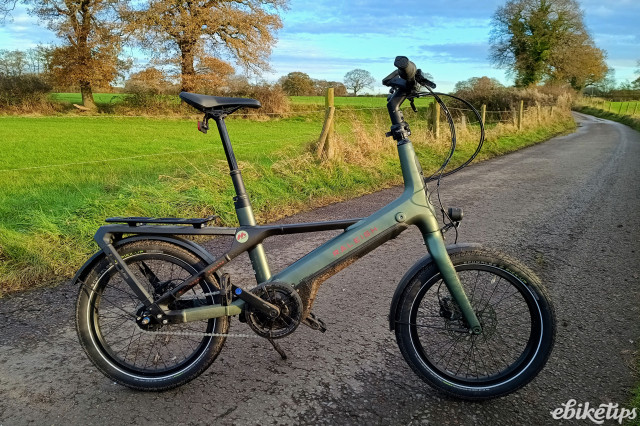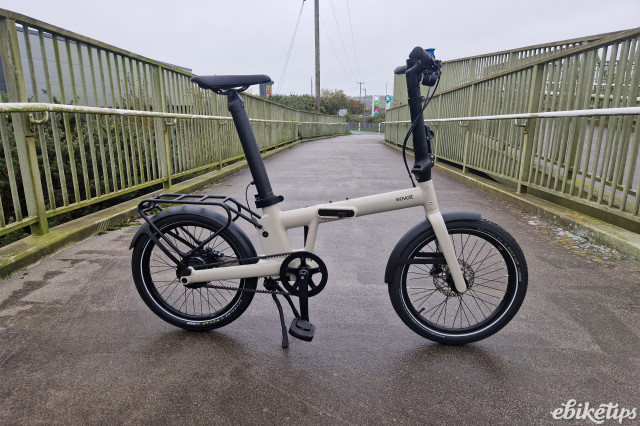London’s three e-scooter operators – Tier, Lime and Dott – are working with University College London (UCL) to develop a universal sound that will alert pedestrians when the vehicles are approaching. The work could result in an industry standard, which operators across the UK could then adopt.
Research into the sound is being carried out at UCL’s specialist Person-Environment-Activity Research Laboratory (PEARL), building on existing work by all three operators.
The aim is to help road users to more easily identify the presence of a rental e-scooter regardless of its operator or make.
The sound will need to take into account the needs of individuals with sight loss, hearing loss and neurodiverse conditions. It will first be tested at the PEARL research facility, which can create different city environments, before being trialled on the street.
> London e-scooter schemes could replace 5 million car trips a year
The joint initiative comes off the back of discussions with groups including Transport for All, the Thomas Pocklington Trust and the Royal National Institute of Blind People.
Mike Bell, national public affairs lead at the Thomas Pocklington Trust. said: “It’s vital transport works for everyone, and is safe and inclusive for those with different needs. Introducing a clear, recognisable sound to e-scooters will help protect blind and partially-sighted people and other potentially vulnerable road users by helping them to detect when a vehicle is approaching.
“We want to make sure this sound is effective in real city environments, and so we are thrilled to be working closely with UCL and Tier as it is developed and rolled out, to help make a real difference to visually impaired people in London and across the country.”
Professor Nick Tyler, director of UCL PEARL, said: “This is an exciting project to work on to ensure that people with a range of different capabilities can know when an e-scooter is nearby and how it is moving, enabling them to comfortably and safely move around the urban environment.
“Through studying how the human hearing system has evolved, we can create sounds for e-scooters that are detectable without adding more noise to the environment. We plan to test a range of combinations of sounds and environments at UCL PEARL with people who are less likely to detect e-scooters nearby, so that we create a sound that works for all.
“It is a huge scientific challenge, but one that will enable everyone to feel comfortable with this new form of micro-mobility that is quickly growing in popularity.”
‘Universal sound’
Vice president and regional general manager of Tier, Fred Jones, said the aim was to create a ‘universal sound’ for all electric scooters, which could then be employed by operators across the UK.
> Decision on legality of e-scooters pushed back as Government waits to see how London trial goes
“Safety is at the heart of everything we do at Tier, and so we are proud to have initiated and funded this project to develop an inclusive and effective sound for e-scooters,” he said.
“Tier will license the use of this sound for free to the benefit of other operators in our industry, and the residents of the cities in which they serve. Working with experts at UCL to develop an inclusive sound for e-scooters will be crucial to protecting pedestrians and road users potentially made vulnerable through the introduction of this new transport mode to the UK.”
Duncan Robertson, UKI general manager at Dott, said: “As we work to offer more sustainable transport for people to get around their cities, it’s crucial that we consider the needs of riders and non-riders alike. This project builds upon our existing research with the University of Salford to refine audible options and test in a virtual environment.
“By working with our partner operators, we are bringing together our collective insights to help find a solution which we hope will become consistent across the industry, and therefore as simple as possible for other road users and pedestrians to understand.”
Alan Clarke, senior director of policy at Lime, said: “Lime is proud to be leading the way in developing e-scooter services which are safer, more accessible and better integrated with other users of urban space.
“This project builds on our existing work with Lime’s independent disability advisory board to research how audio-alerts can improve the safe integration of e-scooters into cities. As a business operating across five continents, Lime is uniquely placed to bring together work happening around the world to design e-scooter services which are more inclusive.
“We look forward to feeding outcomes from this project into that global effort, as well as here in the UK.”









